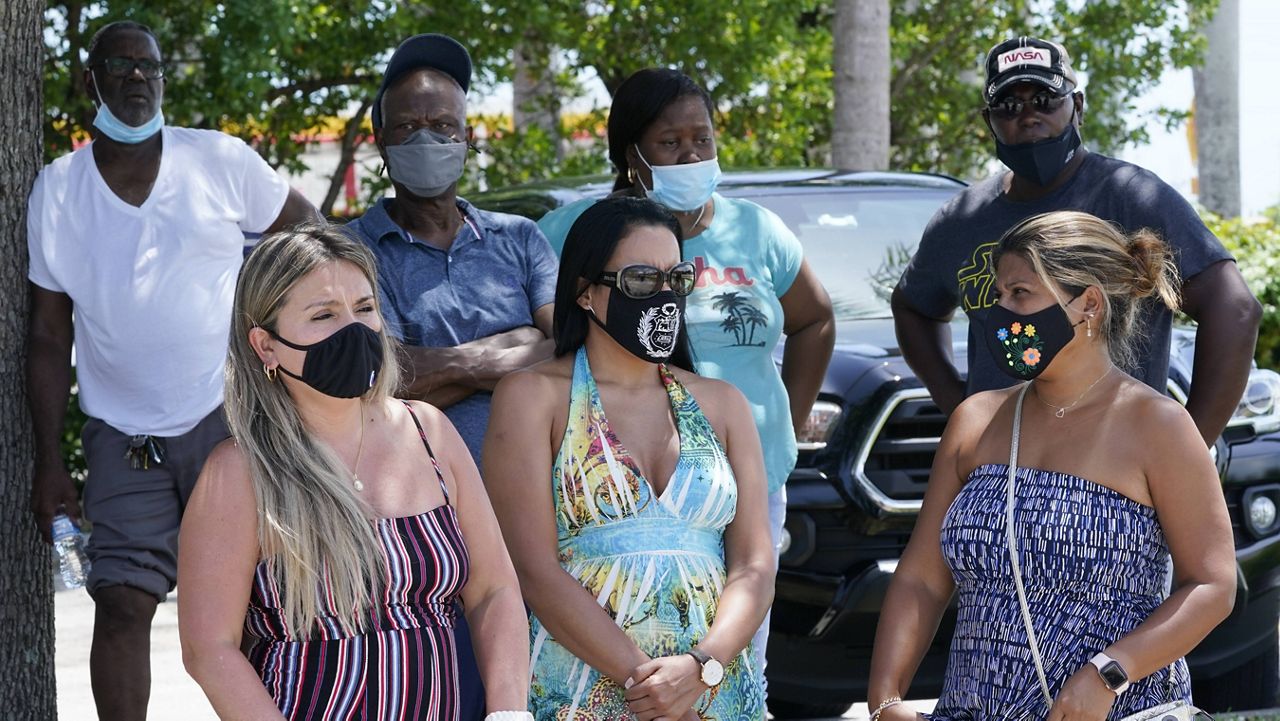Despite the widespread availability of vaccines nationwide, the United States has recorded its first day of more than 100,000 new COVID-19 infections in nearly six months.
What You Need To Know
- On Friday, the United States had 101,171 confirmed new COVID-19 cases, the most since it recorded 106,732 on Feb. 6, according to data from the Centers for Disease Control and Prevention
- It’s the latest sign that a pandemic the country appeared largely to have reined in several weeks ago is raging again amid the spread of the highly contagious delta variant and lagging vaccination rates
- The country’s seven-day average for new infections now sits at 72,493, up 531% from six weeks earlier; that is the highest seven-day average since Feb. 17
- The United States has fully vaccinated 49.6% of its residents, but after a steady, monthslong decline, the rate of immunizations is rising again
On Friday, the country had 101,171 confirmed new cases, the most since it recorded 106,732 on Feb. 6, according to data from the Centers for Disease Control and Prevention.
It’s the latest sign that a pandemic the country appeared largely to have reined in several weeks ago is raging again amid the spread of the highly contagious delta variant and lagging vaccination rates.
The country’s seven-day average for new infections now sits at 72,493, up 531% from six weeks earlier. That is the highest seven-day average since Feb. 17.
Meanwhile, COVID-19 deaths are up 81% from July 10 to an average of 308 a day, and hospitalizations are up 41% over just one week.
Concerns about the delta variant prompted the CDC last week to change its guidance to say that fully vaccinated people should again wear masks in indoor public places when in areas with high or substantial transmission rates.
In an internal document last week, the CDC said that delta variant is more contagious than the common cold, flu, smallpox and Ebola virus. The document says vaccinated people with breakthrough infections can transmit the virus as easily as those who are unvaccinated.
Coronavirus cases are rising in all 50 states, but those with low vaccination rates generally are faring worse than those with higher levels of inoculations. For example, Louisiana, Arkansas, Mississippi and Alabama — all with vaccination rates of 37% or lower — are among the five states with the highest per-capita infections.
Louisiana is reporting its highest seven-day average in new infections of the pandemic — more than 4,100 cases a day. Meanwhile, Florida broke pandemic records for its most new cases in a day (21,683) and hospitalizations (10,207) over the weekend.
On Sunday, Dr. Anthony Fauci, the federal government’s top infectious disease expert, predicted on ABC’s “This Week” that “things are going to get worse,” although he said he believes enough people have been vaccinated to prevent case numbers from soaring as high as they were this past winter.
“If you look at the acceleration of the number of cases, the seven-day average has gone up substantially,” Fauci said. “You know what we really need to do … . We say it over and over again. and it's the truth: We have 100 million people in this country who are eligible to be vaccinated who are not getting vaccinated.”
“We are seeing an outbreak of the unvaccinated,” Fauci added.
The United States has fully vaccinated 49.6% of its residents, but after a steady, monthslong decline, the rate of immunizations is rising again. The total number of doses administered has increased 27.6% over the past three weeks to more than 551,000 a day, while the number of people receiving their first shots is up 42.4% over roughly the same time period to 378,387 a day.



